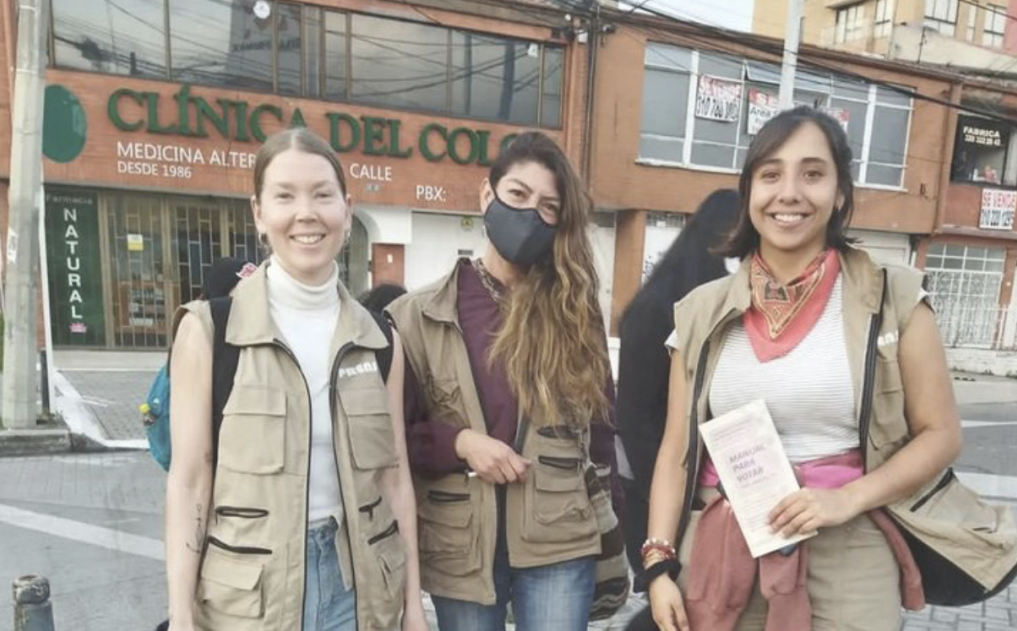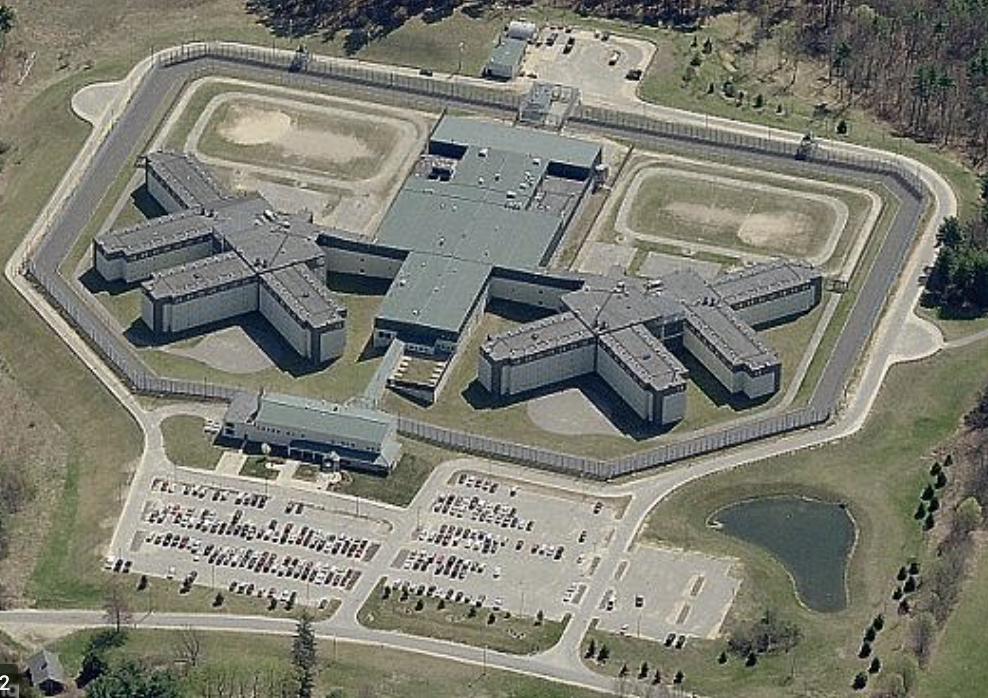Given the substantial portion of national spending allocated to defense and its profound impact on international relations and overall well-being, it’s crucial for the public to have a voice in this discourse. Humor can play a vital role in breaking down barriers, making the discussion more accessible to those who may have felt excluded previously.
In this interview, I talk with Jinsella Kennaway, Co-founder & Executive Director of the UK-based Demilitarise Education (dED), about their work to untangle, expose, and end university ties to the global arms trade.
I first met Jinsella Kennaway at the International Peace Bureau’s World Peace Congress in October 2021. While at the Congress, I had the chance to preview dED’s video, “Myth 1: Higher Defense Spending = Increased Security” — and have been a supporter of their work ever since.
The video was the first in dED’s 7 Myths video series, which is based on the World Peace Foundation’s collaborative project with ShadowWorld Investigations, Project Indefensible. All seven of dED’s myths videos are available through their youtube channel.
Project Indefensible debunks seven myths that the arms industry uses to deflect criticism and sustain their profits, and points to how we can combat the trade’s influence on political decisionmaking. The project culminated in the book, Indefensible: Seven Myths that Sustain the Global Arms Trade (Bloomsbury, 2017) by Paul Holden, with Bridget Conley, Alex de Waal, Sarah Detzner, J. Paul Dunne, Andrew Feinstein, William Hartung, Lora Lumpe, Nicholas Marsh, Sam Perlo-Freeman, Hennie Van Vuuren, and Leah Wawro.
Two aspects of dED’s work that most impress me are the way they bring humor into their activism and their engagement with young people. I wanted to learn more with Jinsella about what dED does and how they do it.
B. Arneson: Can you tell us about your background and how you became involved in dED?
Jinsella: In 2017, at the ExCeL Center in East London, my life changed forever. I watched as grandmas were arrested and detained for blocking a road in order to prevent war machinery from being sold to oppressive regimes at the Defence and Security Equipment International (DSEI) event, one of the world’s biggest arms fairs. What this revealed to me was that my country, Britain, has a deep obsession with war and the facade of our current defense system was lifted. On returning to University, I was shocked to realise this obsession for war also lies within our education systems, at which point I realised the vulnerability of my own freedom due to my passive complicity in global oppression. This is something I was not able to shelve, and I began to put my skills towards fulfilling the need to expose corruption and develop more peaceful societies. In 2019, I co-founded Demilitarise Education.
B. Arneson: What is the relationship between universities and the global arms trade?
Jinsella: The relationships are lucrative, with money flowing between parties in the form of academic and research partnerships and investments. At dED, we have built the world’s first universities and arms database which has so far uncovered over £1.8bn worth of defense sector partnerships.
In our findings so far, research partnerships account for the largest share of this figure. This means that university research is funded by weapons-producing companies and/or government bodies for military technology, aeronautics, or other arms-related projects. It often involves arms companies like BAE Systems, Rolls-Royce, or QinetiQ directly as ‘industry partners.’
The second largest partnership type are monetary investments. These are made by universities either directly in arms companies themselves, or indirectly through third-party investments or fund managers like Barclays, Lloyds or BlackRock holding shares in arms companies.
The third partnership type we track is academic partnerships which, while forming only a small proportion of the monetary value of partnerships overall, are perhaps the most visible to students. Academic partnerships include the development of learning and career opportunities between universities and the arms industry/defense sector, such as sponsored academic awards, careers fairs and graduate schemes.
B. Arneson: I appreciate how dED uses humor to educate their viewers, especially in the 7 Myths videos. Was this your intention or did it happen naturally? What is the value of incorporating humor into messaging?
Jinsella: This was our intention and for good reason. National security is often shrouded in secrecy, creating a significant barrier for public engagement. Many people feel disconnected from the conversation, lacking the necessary information to participate meaningfully. However, transparency, scrutiny, and accountability are fundamental pillars of democracy. Given the substantial portion of national spending allocated to defense and its profound impact on international relations and overall well-being, it’s crucial for the public to have a voice in this discourse. Humor can play a vital role in breaking down barriers, making the discussion more accessible to those who may have felt excluded previously. By incorporating humor, we can demystify the conversation and encourage broader participation, ultimately strengthening our democratic processes.
B. Arneson: What was the most difficult part of creating the 7 Myths series?
Jinsella: The series is based on the book Indefensible: 7 Myths that Sustains the Global Arms Trade, which was funded by the World Peace Foundation! This made structuring and scripting the series challenging, but achievable. The real lessons we learned during the editing and production phase, as this was the first time we at dED had produced a video series like this, was that editing took much longer than we expected, delaying the release. We took so long to create them that we started to fear that the final output would not match the considerable effort we had put into producing them. However, when we finally released them, we launched by inviting one of the co-authors, Andrew Feinstein, as well as Lowkey and Sir Richard Taylor Norton, onto our talk show dED Talks. They all celebrated the videos, which was a huge relief and credit to the quality of the final product.
We are even more delighted to see feedback from the public on our YouTube channel, such as this comment: “I love all the reasons and counterarguments you raised regarding the topic and applied some sound logic. They really made me think deeply into the question and brought me round to your point of view.”
Countering the military agenda in terms of our security needs is no easy challenge. Militarization reaches all levels of our society. However, being able to contribute to the rewriting of security agendas makes all the challenges worth it.
B. Arneson: How can we engage more young people in research?
Jinsella: Amidst the ongoing crises in places like Palestine, Ukraine, Sudan, Yemen, and beyond, students are finding themselves more engaged than they have been in years. However, balancing activism with the demands of securing a livelihood presents a significant challenge for young people. The urgency of global crises and the disillusionment with current systems make it increasingly difficult to ignore the need for action, both internationally and domestically. As advocates for international peace, it’s essential to meet young people where they are and provide accessible opportunities for them to join the global fight for peace within the constraints of their time and capacity.
At dED, we offer various volunteer roles—from research to media and community building—that can be completed online and tailored to each volunteer’s capacity. Truth is vital not only for survival but for thriving, and I encourage young people to continue seeking ways to engage in these critical issues while also providing feedback to peace organisations on how to improve the engagement experience.
B. Arneson: Do you have any final thoughts?
Jinsella: The need to Demilitarise Education is more relevant than ever. As our Researcher Okopi eloquently wrote in dED’s most recent report in partnership with Campaign Against Arms Trade, “Drawing attention to the wider issues of the arms trade, as a ‘macro-ethical’ approach to engineering ethics, can impel engineers to direct their talents into addressing the underlying causes of armed conflict, such as competition over scarce resources and socioeconomic alienation.”
It is time for us to build preventative systems of conflict rather than focusing our resources on reactionary action. As the 7 Myths video series demonstrates, this contributes to a perpetual cycle of war. Education is a key pillar of sustainable transformation. I look forward to continuing to work with students, university staff, and academics who are rallying behind the Demilitarise Education Treaty, which offers universities a comprehensive plan to divest from arms and reinvest in a peaceful future for all.

Jinsella Kennaway is the Co-founder & Executive Director of Demilitarise Education. Hosting the world’s first universities & arms database & a model for comprehensive demilitarisation, her work has led to the uncovering of £1.8bn+ of UK University partnerships with the arms trade. Jinsella is committed to working for education that champions peace, not war.




